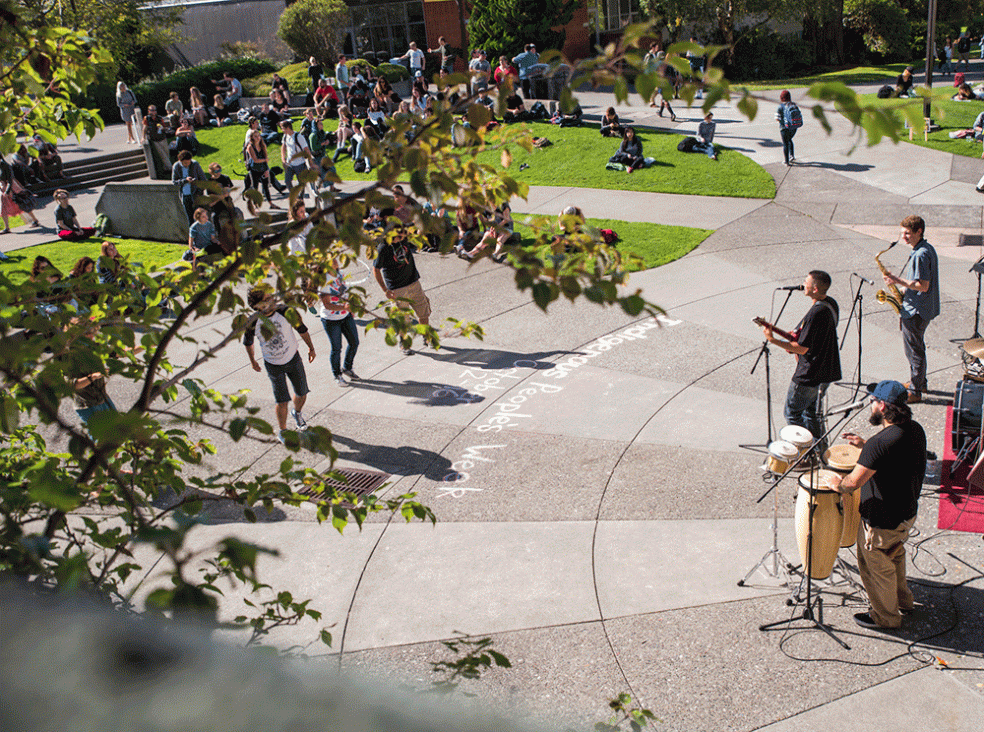
This annual event is sponsored by the Indian Tribal and Educational Personnel Program (ITEPP), which has supported Native students for more than 50 years.
IPW challenges the idea that Christopher Columbus “discovered” America by revealing the devastating impact he and his men had on the Indigenous communities. Cal Poly Humboldt students, faculty, and staff provide the campus with an alternative to the celebration of Columbus Day through week-long activities focused on the resilience of Indigenous people.
Since 2014, ITEPP staff have worked with Native students, faculty, and staff on campus to design the annual IPW. “When I was a Cal Poly Humboldt student, IPW was so much fun. As students, we designed workshops and invited guests to campus. It was an opportunity of pride and connection for Native students. Now as the ITEPP Coordinator, I am elated to be able to work with the departments of Social Work and Native American Studies, Goudi’ni Gallery, INRSEP, Native tribes and agencies, ITEPP Club, and others to keep this tradition alive,” says ITEPP Coordinator Sasheen Raymond.
Recognition of Indigenous Peoples Day began in 1992, which coincided with the 500th anniversary of Columbus' arrival to the Americas. Native students protested Columbus Day and held various events across campus. In 1996, the American Indian Alliance expanded the one day celebration to a full week of events and activities.
One alum shared his experience as a member of the group of students who initiated the week-long event. “IPW was planned by Native students, with the support of staff and faculty as a means to highlight Tribal history, sovereignty, and cultural awareness & identity," says Vincent Feliz ('98, Psychology), coordinator of the Da’luk Youth Program.
Students reached out to local Tribal leaders to offer workshops and presentations on campus. A highlight was cultural sharing night where Native students shared songs and stories related to their Indigenous identities.
“One of the original ideas of IPW was to show the non-Tribal campus community that Native American Indigenous people and communities are still here and are very much a part of the existing U.S. country as we know it,” Feliz says.
Go to ITEPP’s website for a full schedule of events